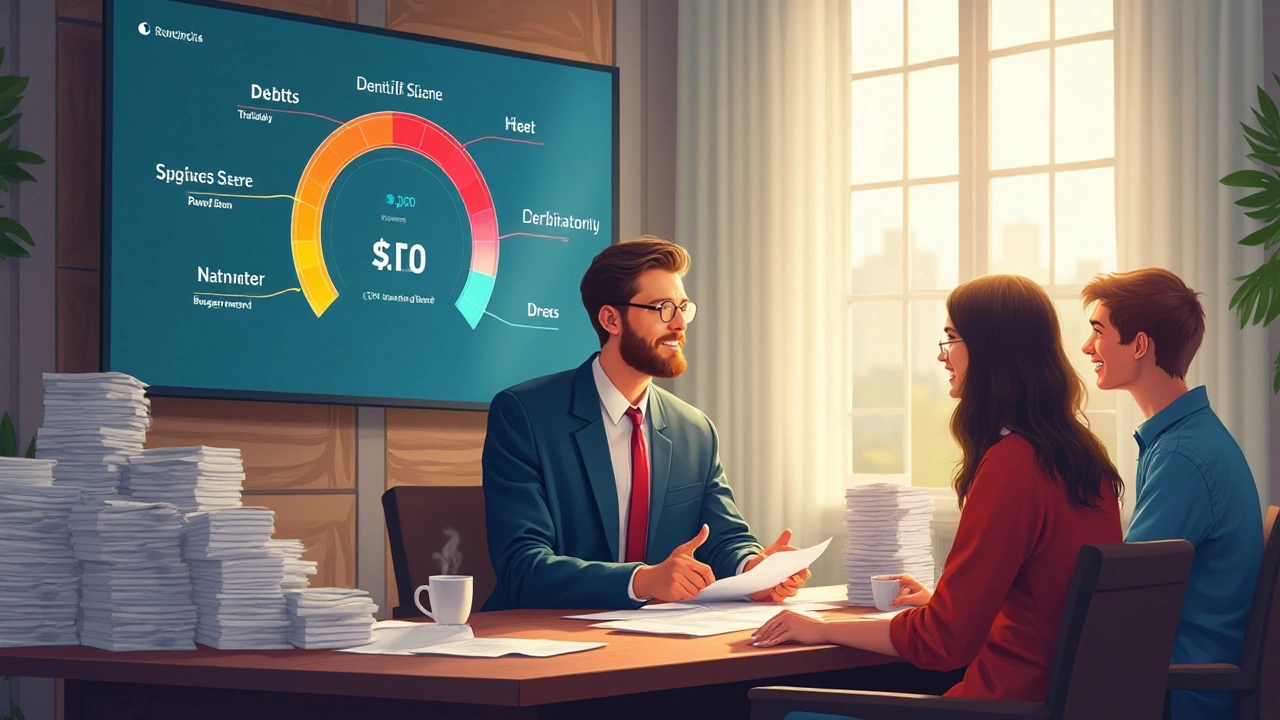Ever get that gut-wrenching feeling when another bill hits your inbox? It's like a game of financial whack-a-mole—just as you tackle one, two more pop up. Then you hear about debt consolidation. Sounds like magic, right? Turn all your messy payments into one tidy monthly bill. But there’s a big question lurking in every internet forum and after-dinner chat: Will debt consolidation trash your credit score?
How Debt Consolidation Actually Works—and Why People Worry
Let’s clear the air first. Debt consolidation means rolling several debts (usually credit cards or personal loans) into one new loan or credit line. It's not a wild spending spree or a secret financial fix. It's a tool—like those multi-purpose pocket knives. Some people use a debt consolidation loan from a bank or credit union. Others use a balance transfer credit card to pile their card balances onto one, ideally with a low or zero percent intro rate. There’s also home equity loans and even more creative options like borrowing from a retirement plan, though those come with their own risks.
Why bother? Because juggling a heap of deadlines and interest rates is stressful as heck. Missing even one payment dings your credit score. And when your creditors get jumpy and send your account to collections, your score really feels it. So simplifying things seems smart. But there’s always a catch, right?
People worry that applying for a new loan will tank their credit. They worry about closing old accounts, changing credit mix, and whether this “shortcut” ends up a dead end. It doesn’t help that some shady companies promise overnight credit miracles, leaving you worse off than before. But let’s cut through the noise and focus on what actually happens to your credit during debt consolidation—and after.
| Factor | Effect on Credit Score |
|---|---|
| Hard Credit Inquiry | -5 to -10 points (temporary) |
| Reducing Credit Utilization | Usually Positive |
| Opening a New Account | Mild Negative (short-term) |
| Closing Old Accounts | Potential Negative (depends on credit history length) |
| On-Time Payments After Consolidation | Positive (long-term) |
So, is the process actually destructive? Does it leave a scar on your credit report forever? Not exactly. Let’s dig into the details.

The Real Impact: What Debt Consolidation Does to Your Credit Score
First up: When you apply for a debt consolidation loan or new credit card, your lender pulls your credit report. This “hard inquiry” can shave 5-10 points off your score temporarily. Is that catastrophic? Not really—unless your credit is already hanging by a thread. If you’re shopping for rates at several lenders in a short window (usually 14 to 45 days, depending on the bureau), these inquiries often count as one. So rate shop quickly if you plan to.
Now, let’s say you get approved for a new loan and use it to pay off your credit cards. Suddenly, all those card balances drop to zero or close to it. That means your credit utilization—the percentage of your available credit you’re using—improves. Since utilization makes up about 30% of your score, this can give your number a healthy boost. Some folks see a jump of 20 or even 40 points. As long as you don’t rack up more debt on those paid-off cards, you’re golden.
But there’s a twist if you decide to close your old credit cards after you consolidate. Shutting down those accounts can shrink your available credit, raising your utilization rate again, which dings your score. It can also slightly shorten your average account age, another minor negative, especially if you’re closing a card you’ve had since college. If you trust yourself not to splurge, keeping old cards open (with a zero balance) is usually best for your credit.
Don’t forget: Payment history is the single biggest factor in your score. If you miss a payment on your new consolidation loan or credit card, all that hard work evaporates fast. But stay on track? The positive payment streak adds weight to your credit report over time, and your score climbs. Some people check their score religiously—they see real movement upward within 6 to 12 months, provided they don’t fall back into late payment habits.
One overlooked detail: Using a home equity loan or HELOC to pay down card debt can boost your score even more by wiping out utilization and adding another credit type to your profile. Still, mixing your house with credit cards is a gamble—default, and you risk foreclosure.
Here’s a chart to spell it out:
| Debt Consolidation Step | Short-Term Credit Score Impact | Long-Term Impact |
|---|---|---|
| Apply for new loan or card | Slight drop (up to 10 points) | No effect after a few months |
| Pay off high-interest debts | Slight increase possible | Bigger boost as utilization drops |
| Make all payments on time | No immediate change | Strong positive over time |
| Close old accounts | Possible dip | May lower score if accounts were old |
The bottom line: Debt consolidation may create a small pothole in your credit road trip, but you can dodge the worst bumps. For most people who are floundering under late fees, collection calls, and maxed-out cards, it’s not just a life raft—it’s a chance to steer your finances back on track.

Smart Moves to Guard Your Credit During Debt Consolidation
If you’re thinking about pulling the trigger on debt consolidation, you’ve got options. And you don’t want to rush. Planning out your steps keeps your credit safe. Here’s how people have used this strategy without regret:
- Check your credit score first. This tells you what loan rates you’ll qualify for. You can get a free score from most credit card providers or services like Credit Karma. If your score is below 620, you’ll likely pay higher interest, so consider a credit-building plan first.
- Don’t close all your credit cards after paying them off—unless they carry expensive annual fees you no longer want. Keeping the oldest cards open helps keep your average account age up and utilization down.
- Shop for consolidation loans or balance transfer offers within a short calendar window, so your credit runs look like one event, not several.
- Read the fine print. Some balance transfer cards hit you with deferred interest if you haven’t paid the full amount by the end of the intro period. Others bake sneaky fees into consolidation loans. If you’re using a home equity loan, weigh the risk—your home is on the line if things go south.
- Create a payment plan before consolidating. The new single payment might seem easy, but defaulting after you consolidate is the fastest way to trash a credit score. Set up auto-pay and alerts so you never miss a due date.
- Resist the urge to use your newly cleared credit cards. That’s how people slide back into debt. Cut up the cards but leave the accounts open if you have to.
- Track your credit score monthly to see the fallout or improvement. Sites like Experian and TransUnion let you see changes on a rolling basis. Many people spot their scores start crawling upward a few months after good payment behavior.
- If you’re feeling lost, talk to a nonprofit credit counselor. They offer free or affordable guidance and can help you spot fake “debt relief” scams—a growing problem since 2023, when the FTC saw consumer debt complaints jump 22%.
And here’s one last nugget: Don’t ever trust a debt consolidation company that promises to raise your score overnight. There’s no legal way to erase bad marks instantly. If anyone wants you to pay upfront fees or tries to talk you out of reading your own loan agreement, walk away. Google the company’s name with the word “complaints” before you sign anything. Fraud in the debt relief world isn’t rare—people lost over $172 million to debt relief scams in 2024 alone, according to the Consumer Financial Protection Bureau.
Debt consolidation isn’t the credit killer people fear. Used right, it’s more like a credit detangler. It lets you untie those stubborn financial knots—all while giving yourself a shot at a higher score and some rare peace of mind. Just treat it with respect, play it smart, and don’t expect miracles. If you do, you’ll not only survive the process—you might just come out ahead.









